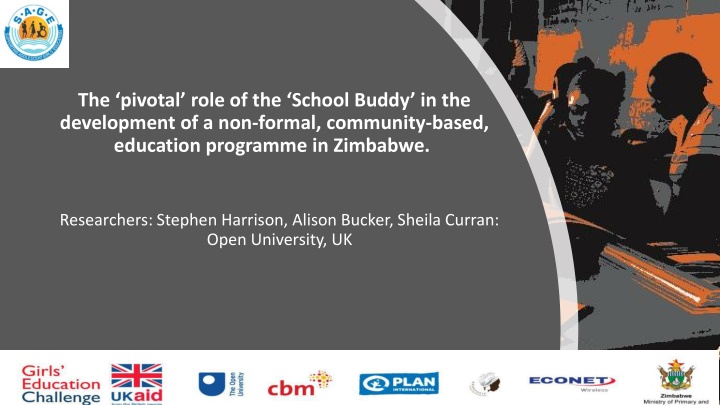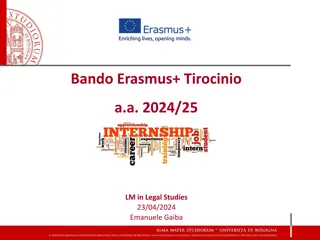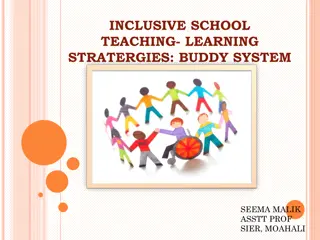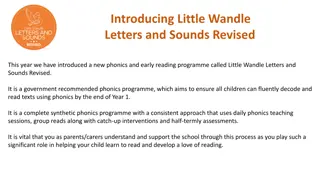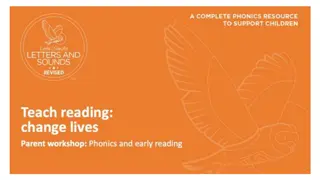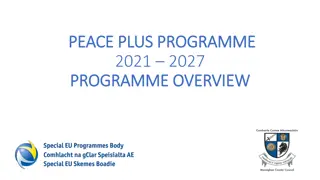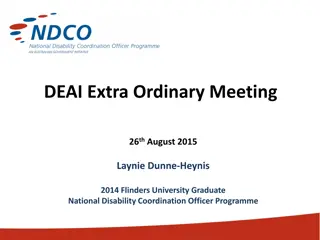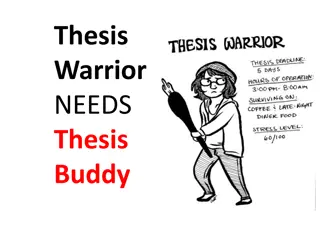Role of the School Buddy in Community-Based Education Programme
School Buddies play a pivotal role in the development of non-formal, community-based education programs in Zimbabwe. This program, Strengthening Adolescent Girls Education (SAGE), involves Community Educators, School Buddies, and Learning Hubs to support over 13,200 learners. Professional support is provided to enhance the effectiveness of Community Educators. An emerging narrative of collegiality highlights the significant impact of the School Buddy in improving competency and promoting effective learning practices within the educational landscape.
Download Presentation

Please find below an Image/Link to download the presentation.
The content on the website is provided AS IS for your information and personal use only. It may not be sold, licensed, or shared on other websites without obtaining consent from the author.If you encounter any issues during the download, it is possible that the publisher has removed the file from their server.
You are allowed to download the files provided on this website for personal or commercial use, subject to the condition that they are used lawfully. All files are the property of their respective owners.
The content on the website is provided AS IS for your information and personal use only. It may not be sold, licensed, or shared on other websites without obtaining consent from the author.
E N D
Presentation Transcript
The pivotal role of the School Buddy in the development of a non-formal, community-based, education programme in Zimbabwe. Researchers: Stephen Harrison, Alison Bucker, Sheila Curran: Open University, UK
Strengthening Adolescent Girls Strengthening Adolescent Girls Education Education (SAGE) in Zimbabwe (SAGE) in Zimbabwe SAGE in numbers: 278 Community Educators 93 School Buddies 88 Learning Hubs 13200 learners have been recruited onto SAGE 2500 graduates to date Open University providing: Bespoke learning materials for learners and educators Training for educators and School Buddies Expertise in Distance Education
Professional Support for Community Professional Support for Community Educators: Educators: Recognised the need for professional support for Community based Educators Responded to concerns regarding traditional models of mentoring/professional supervisory approaches which emphasised a hierarchy of expertise. Adopted the term School Buddy as a means of communicating the ethos of the kind of professional relationship the programme wanted to foster.
Exploring Community Educator and Exploring Community Educator and School Buddy perspectives on the School Buddy perspectives on the School Buddy Role School Buddy Role A study: Exploring the resources community educators draw upon in the development of their role within an emerging practice landscape. Foregrounding practitioner accounts. With particular focus on the relationship between the community educator and the School Buddy has emerged.
An emerging narrative of collegiality An emerging narrative of collegiality and the pivotal role of the School and the pivotal role of the School Buddy. Buddy. Anesu (Community Educator): Working with my buddy played a pivotal role in improving my competency, communication skills and resiliency. The buddy and the CE also worked together to promote effective learning in displaying if charts and creating some learning corners such as the reading corners and the hub shop where empty containers and sachets were collected and priced and used as a media to teach certain concepts in numeracy this boosted learning as it allowed the learners to progress smoothly from simple to complex.
What next? What next? Develop analysis further, paying particular attention to the ways in which practitioners describe the value they draw from their relationship. Further illustrate the multifaceted and variable nature of the relationships formed in practice. Seek to articulate more fully the School Buddy model of professional support, in theory and in practice.
